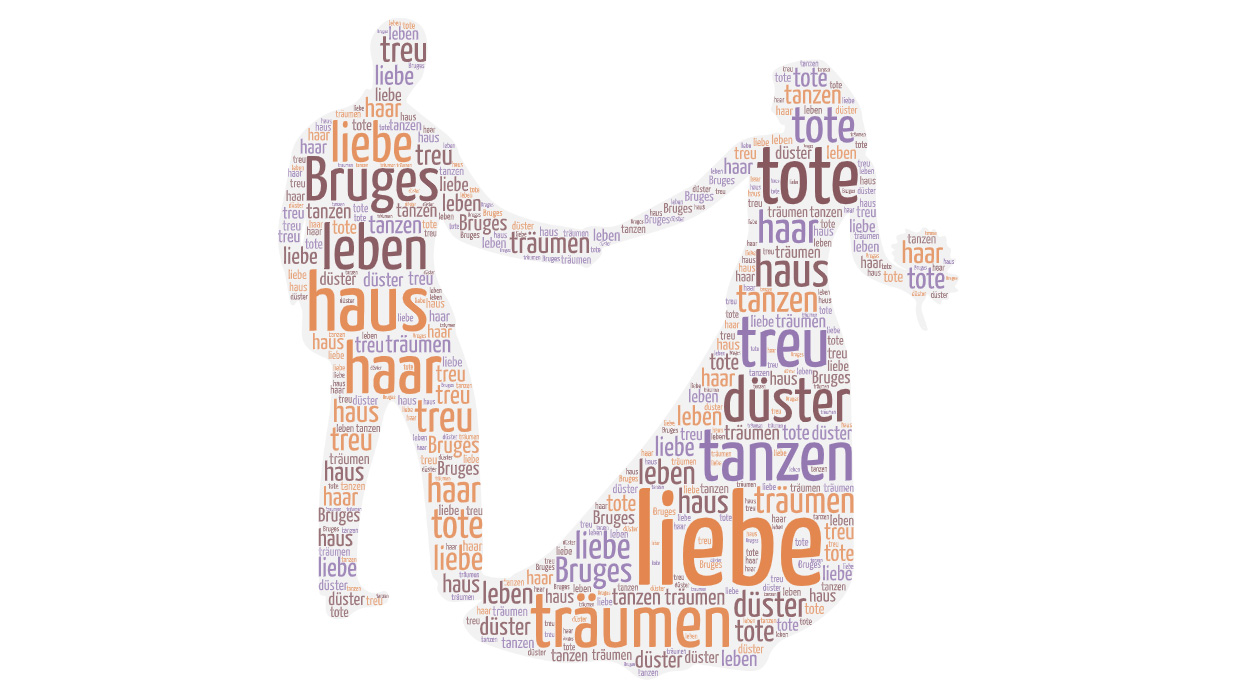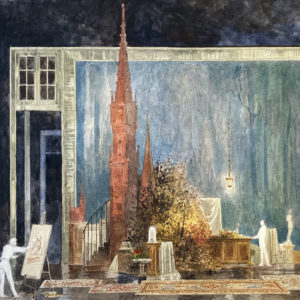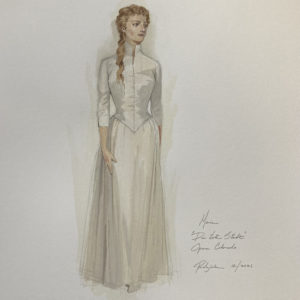Top Ten German Words in Die tote Stadt (The Dead City)

By: Angelica DiIorio
The German language is not commonly spoken in the United States, but it is the native language of Erich Korngold, the composer of Die tote Stadt (The Dead City). Despite spending most of his life in Hollywood, Korngold was born in Austria. Die tote Stadt premiered in Germany (Hamburg and Cologne) in 1920 when the composer was just 23 years old.
If you are not up to date on the German language, we’ve got you covered! We promise you won’t be confused as you experience Die tote Stadt—you will also have subtitles at your seat and can read the synopsis before you go.
Learn the plot of Die tote Stadt>>
If you want to feel a little closer to the story, learn the top ten German words in Die tote Stadt with us. These words will help you better understand the intense emotions felt by the characters in Korngold’s haunting drama.
Starting at just $39, get your tickets to see Die tote Stadt >>
#1 German Word in Die tote Stadt: düster (adj.) meaning gloomy
Die tote Stadt is a story of lost love, so Paul spends much of his time grieving his late wife, Marie. His sullen demeanor is noticed by all who interact with him. Other characters often refer to him as “the gloomy one.”
#2 German Word in Die tote Stadt: haar (n.) meaning hair
Marie had blonde hair that she kept in a long braid. Now, Paul keeps her hair in a jar along with other mementos. Despite the eerie nature of this décor, many will comment on the beauty of Marie’s hair. Marie’s hair is a symbol of Paul’s inability to let her memory go.
#3 German Word in Die tote Stadt: haus (n.) / heime (n.) meaning house

Source: Robert Perdziola
Much of this story takes place in Paul’s home, his artist studio. With our beautiful new sets by designer Robert Perdziola, you can explore the little details of Paul’s space.
#4 German Word in Die tote Stadt: Kirche des Gewesenen (n.) meaning Temple of the Past
Alright, we’re cheating on this one a little by giving you a phrase instead of a word. Paul’s shine to Marie is called The Temple of the Past. He keeps items like her hair and her portrait. We all cope in our own way.
#5 German Word in Die tote Stadt: leben (n.) meaning life

Source: Robert Perdziola
Paul is divided between the world of the dead and the world of the living. He is captivated by the memory of the late Marie, but he needs to figure out how to live without her. Marie herself says to him “life holds you” to remind him that he still has a life to live.
#6 German Word in Die tote Stadt: liebe (n.) meaning love
You can’t experience a story of lost love without knowing the word for love. Paul and Marie’s love was strong, which makes it so difficult for Paul to move on without his other half. Marie explains the eternal nature of their love when she says, “Our love was, is, and will be.” If that line doesn’t break your heart, I don’t know what will!
#7 German Word in Die tote Stadt: tanzen (v.) meaning to dance
Marietta is a dancer who is in Bruges to perform in Robert le diable. She dances at her rehearsals and she dances for Paul. While you will not see Marietta’s performance in our production of Die tote Stadt, you should know Robert le diable includes a ballet of zombie nuns!
#8 German Word in Die tote Stadt: träumen (v.) meaning to dream
Many people call Paul a dreamer. He dreams of being reunited with Marie to such an obsessive point that his concerned friend Frank tells him, “You are a dreamer, and a visionary of ghosts.” It is this very obsession which makes it difficult for Paul to distinguish between reality and fantasy.
#9 German Word in Die tote Stadt: tote (n.) meaning dead
It is always a fun moment when the title of the movie is said in the film. While we cannot guarantee you will hear “die tote stadt” said by one of the characters, there are many references, particularly by Paul, to “My dead wife and this dead city.”
#10 German Word in Die tote Stadt: treu (adj.) meaning true or faithful
One of the most beautiful but melancholy songs in Die tote Stadt is “Glück, das mir verblieb” which Marietta describes as “The song of the faithful lover who has to die.” One of the lines is “Glück, das mir verblieb, rück zu mir, mein treues Lieb” or “Joy, that near to me remains, come to me, my true love.” True love is a theme in Die tote Stadt, but Paul’s faithfulness to Marie torments him and prevents him from moving on.
—
Now that you know a few more words in Korngold’s native language, you can be a little closer to the art for Die tote Stadt. With such a haunting, psychological drama, having a little more connection to the words might help process the intense emotions felt in a story of lost love.
Experience the German language set to lush, beautiful music in Die tote Stadt with just four performances from February 25 to March 5. Get tickets today starting at just $39>>


